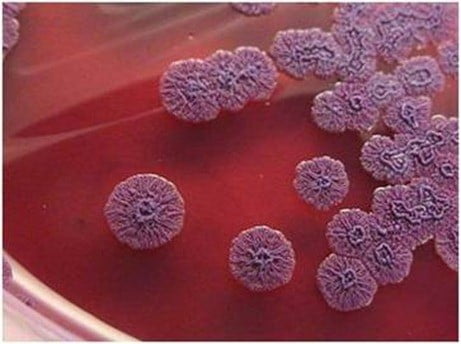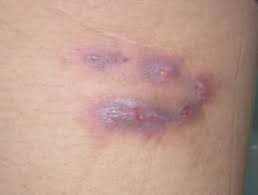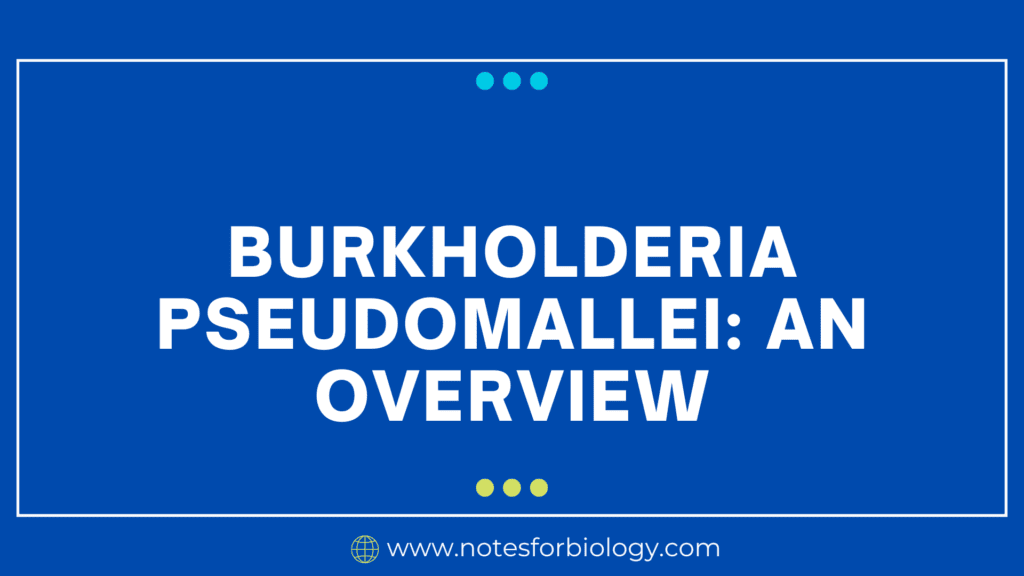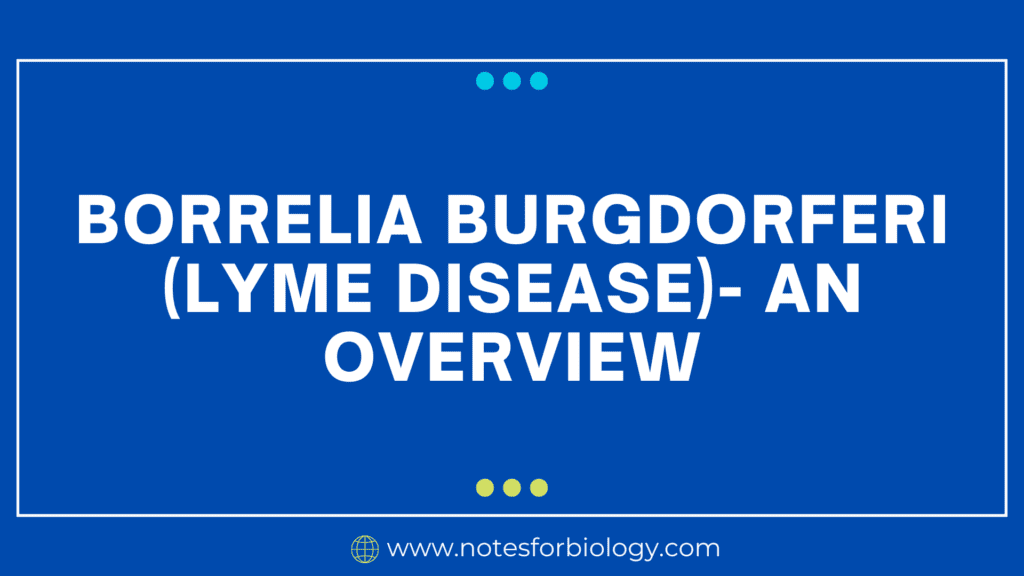What is Burkholderia pseudomallei ?

Burkholderia pseudomallei is a gram-negative, facultative intracellular bacteria that causes melioidosis, a dangerous and frequently fatal infectious disease. This bacterium can infect humans through contact with contaminated soil or water, inhalation of aerosolized germs, or ingestion of contaminated food. It is abundant in soil and water, especially in tropical and subtropical areas.
Table of Contents
Key Features of Burkholderia pseudomallei
Extremely resilient to environmental stressors, It can endure extreme temperatures and dry conditions, among other adverse conditions.
Its metabolism is versatile, allowing it to thrive in a variety of conditions and use a broad spectrum of nutrients.
has a variety of virulence characteristics, which help it avoid the host’s immune system, infiltrate cells, and spread illness.
Can result in a variety of clinical presentations,Melioidosis can induce a variety of clinical manifestations, from an infection without any symptoms to potentially fatal sepsis, pneumonia, and abscesses in several organs.
Melioidosis: The Disease Caused by Burkholderia pseudomallei

A dangerous viral illness, melioidosis can impact the liver, spleen, brain, lungs, and skin, among other organs. Depending on the organs impacted and the extent of the infection, symptoms can differ greatly. Here are a few typical indications and symptoms:
- Fever and chills
- Cough
- Chest pain
- Skin lesions
- Abscesses
- Joint pain
- Headache
- Confusion
Risk Factors and Transmission
Geographical location
Tropical and subtropical areas, including those in Southeast Asia, Australia, and portions of South America and Africa, are the main areas where melioidosis is present.
Exposure to polluted soil or water
There is an increased risk for individuals who work outside in contaminated regions or come into touch with contaminated water.
Weakened immune system
People with HIV/AIDS, diabetes, chronic renal disease, and other conditions that weaken the immune system are more vulnerable to infection.
Inhalation of polluted dust or aerosols
People who work in the construction or agricultural industries are more likely to contract this disease through inhalation.
Food contamination
Melioidosis can also result by consuming tainted food or drink.
Treatment and Prevention
Treatment
Long-term intravenous antibiotics, such as ceftazidime or meropenem, are commonly used to treat melioidosis. The severity of the infection and the patient’s response determine how long the therapy will take.
Preventive measures
A vaccination to stop melioidosis is not currently available. Preventative actions consist of:
1.Wear protective gear when working in polluted regions to avoid coming into contact with contaminated soil and water.
2.Make sure the water is safe to drink by boiling or filtering it.
3.Hand hygiene on a regular basis: After handling soil or water, properly wash your hands.
4.Early diagnosis and treatment, In order to effectively treat a patient and prevent complications, prompt medical intervention is essential.
Research and Future Directions
Vaccine development
Scientists are trying to create a vaccine to prevent melioidosis.
Better diagnostic instruments

To enable early diagnosis and treatment, more precise and quick diagnostic testing are required.
Understanding the virulence factors of the bacteria
Investigations into the pathogenicity processes may result in the creation of novel treatments to counteract melioidosis.
Burkholderia pseudomallei poses a serious threat to public health, particularly in areas where it is endemic. To lessen its effects, it is essential to comprehend its biology, the illness it produces, and efficient preventative and therapeutic strategies.
Frequently Asked Questions (FAQ)
What is Burkholderia pseudomallei ?
Burkholderia pseudomallei is a gram-negative, facultative intracellular bacteria that causes melioidosis, a dangerous and frequently fatal infectious disease.
List the symptoms of Melioidosis ?
The symptoms of Melioidosis are
Fever and chills
Cough
Chest pain
Skin lesions
Abscesses
Joint pain
Headache
Confusion
What are its Research and Future Directions ?
They are
Vaccine Development
Better diagnostic instruments
Understanding the virulence factors of the bacteria
Related Articles


